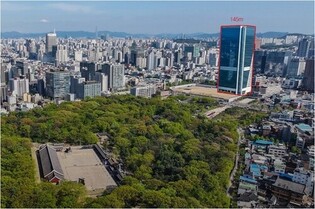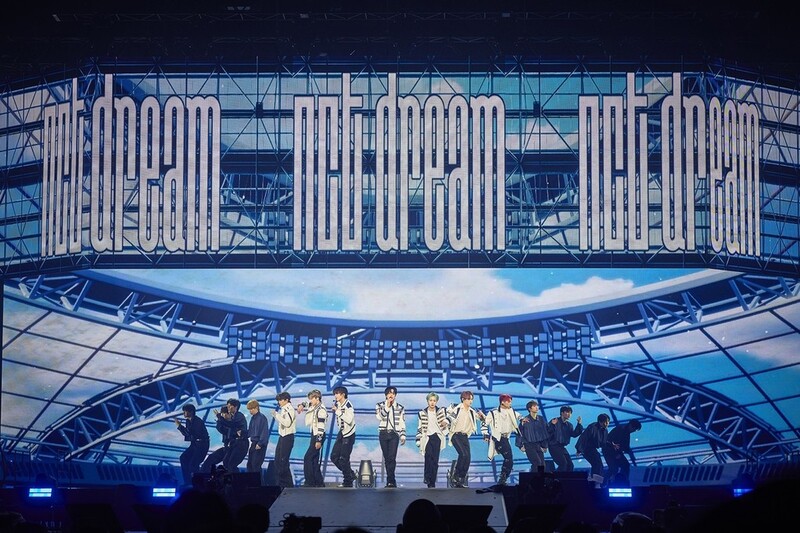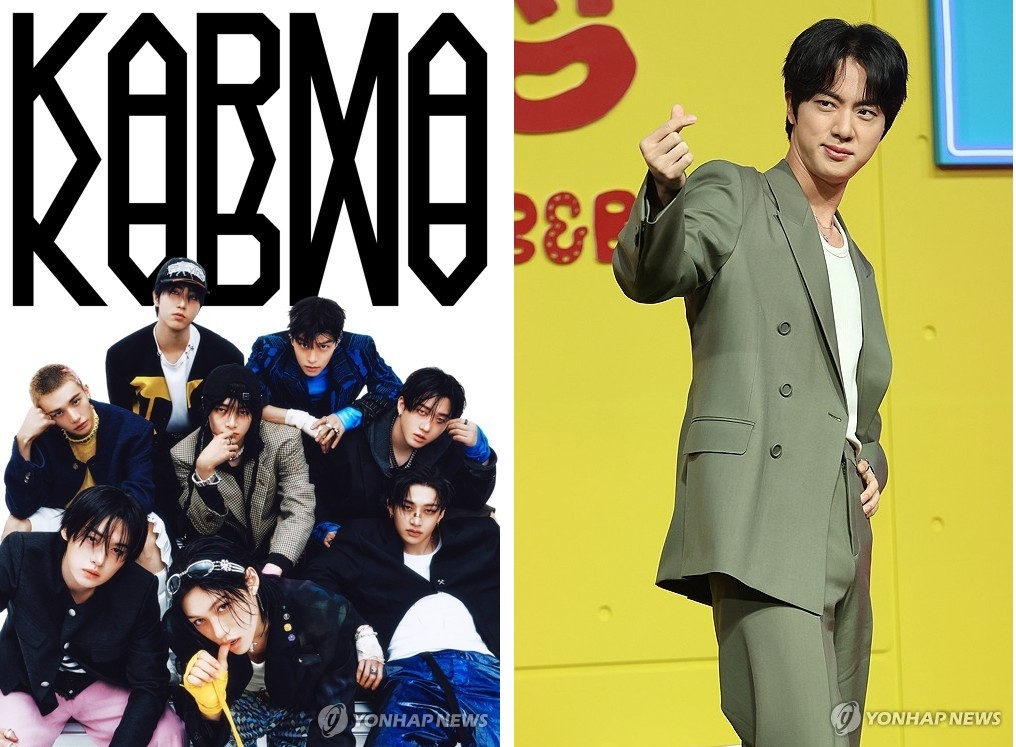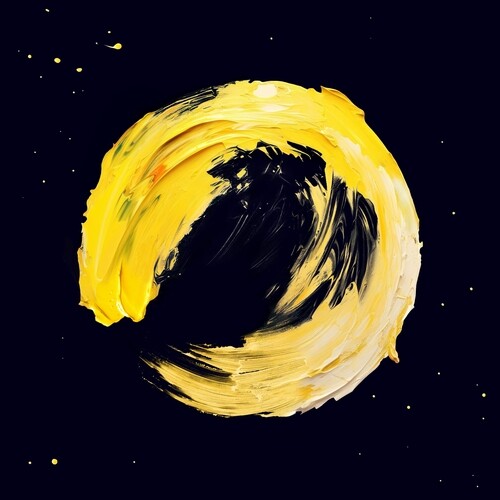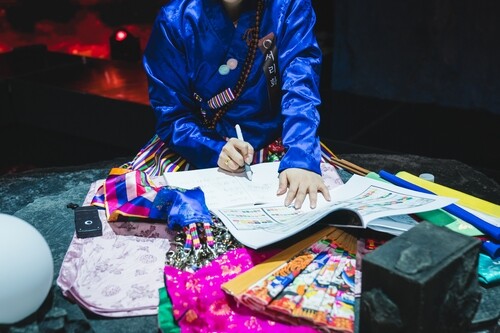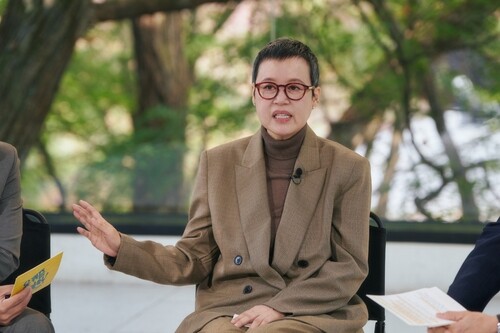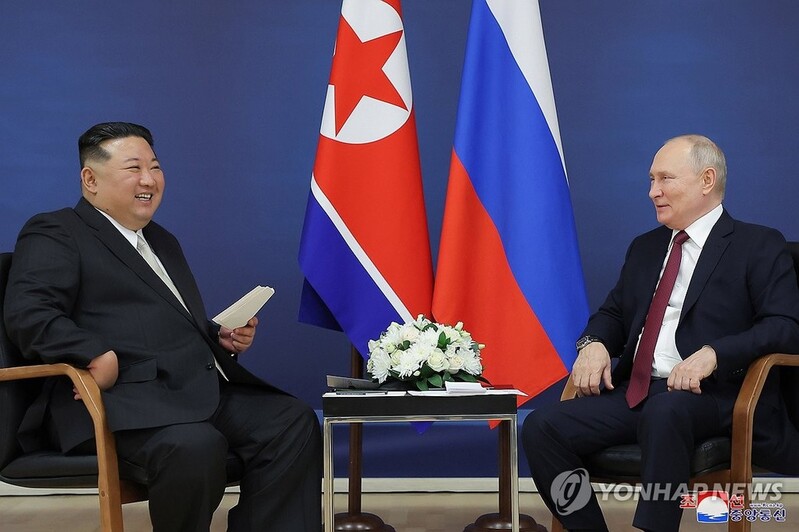 |
| ▲ This file photo, carried by the North's official Korean Central News Agency on Sept. 14, 2023, shows its leader Kim Jong-un (L) and Russian President Vladimir Putin holding a summit at Russia's Vostochny spaceport the previous day. (For Use Only in the Republic of Korea. No Redistribution) (Yonhap) |
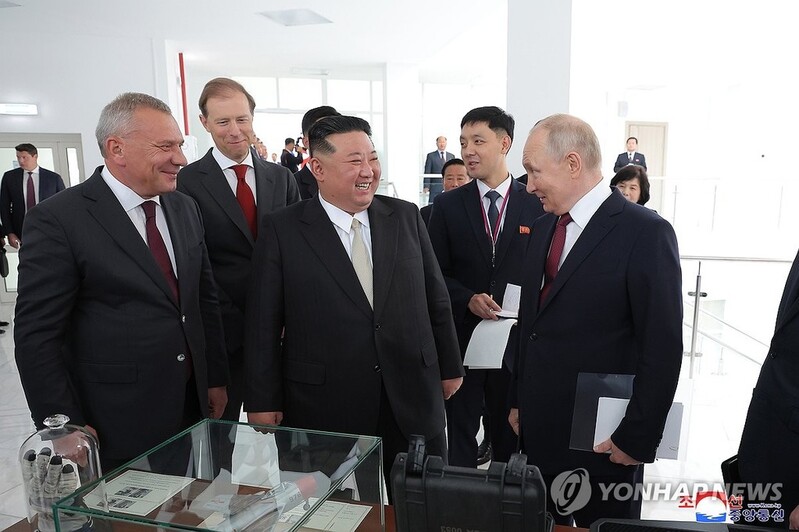 |
| ▲ This photo, carried by North Korea's official Korean Central News Agency on Sept. 14, 2023, shows the North's leader Kim Jong-un (C) and Russian President Vladimir Putin (R) meeting at Russia's Vostochny spaceport the previous day. (For Use Only in the Republic of Korea. No Redistribution) (Yonhap) |
(News Focus) Putin-NK visit
(News Focus) Putin's visit to N. Korea likely to pave way for deeper military cooperation: experts
By Kim Soo-yeon
SEOUL, June 13 (Yonhap) -- Russian President Vladimir Putin's impending visit to North Korea is expected to serve as an occasion to elevate the level of military cooperation between the two nations beyond arms transactions amid a new Cold War geopolitical structure, experts have said.
A South Korean presidential official said Thursday that Putin is expected to visit North Korea "in a few days." Japanese broadcaster NHK reported that Putin could travel to the North "as early as next week" as part of a tour that would include a stop in Vietnam.
North Korea and Russia have yet to officially announce the details of Putin's trip. But if realized, it would be Putin's first trip to Pyongyang since 2000, when he met with then North Korean leader Kim Jong-il, the late father of the current leader.
North Korea and Russia have been bolstering military ties and expanding the scope of cooperation in various fields following the summit between the North's leader Kim Jong-un and Putin in Russia's Far East in September last year.
"If Putin visits Pyongyang, there is a high possibility that North Korea and Russia could upgrade military cooperation to a new level at a time when they are maintaining close military ties," said Cheong Seong-chang, a director at the Sejong Institute.
Putin's trip comes at a delicate time when North Korea and Russia have seen their strategic needs converge amid Moscow's protracted war in Ukraine and Pyongyang's push to advance its weapons programs.
"What garners attention in regard to Putin's trip will be to what extent Russia will provide its support to North Korea's possession of nuclear weapons," said Hong Min, a senior research fellow at the Korea Institute for National Unification.
"In case the two nations renew a treaty of friendship, whether it would include something beyond military cooperation -- for example, their troops' automatic intervention in the case of any contingency involving the other -- could also be an issue of concern," he said.
North Korea and the Soviet Union clinched a treaty of friendship and mutual assistance in 1961, when the North's national founder Kim Il-sung visited Moscow.
The treaty included a provision for an automatic military intervention in emergency situations, but the deal was scrapped in 1996 following the collapse of the Soviet Union in 1991.
In 2000, both sides signed a new treaty of bilateral ties, but it centered on bilateral cooperation in such areas as the economy, science and culture, not in the military sector.
Since the Kim-Putin summit last year, North Korea and Russia have been bolstering military cooperation amid suspicions that Pyongyang has provided weapons and munitions to Moscow for use in its war with Ukraine.
In return, North Korea appears to have received technology assistance from Russia in the development of a military spy satellite.
In late May, North Korea launched a military spy satellite, but the attempt ended in failure as a rocket carrying the satellite exploded right after liftoff.
At a year-end party meeting, Kim Jong-un vowed to launch three more satellites in 2024 after the country successfully placed its first military spy satellite into orbit in November last year.
"If North Korea and Russia announce any plans to cooperate on space development programs, it means that they have a commitment to maintaining cooperative relations on a long-term basis," Hong said.
Cheong at the Sejong Institute raised the possibility of North Korea asking for Russia's assistance in the North's push to build a nuclear-powered submarine.
A nuclear-powered submarine is on the list of high-tech weapons systems that North Korea has vowed to develop, but it appears there has been little progress in Pyongyang's push.
Experts said North Korea and Russia are expected to highlight cooperation in the economic sector, as their arms transactions and deeper military cooperation constitute a violation of United Nations Security Council (UNSC) resolutions banning Pyongyang's nuclear and missile programs.
In March, the UNSC failed to extend the mandate of the panel of experts monitoring the enforcement of sanctions against North Korea as Russia, a permanent member of the council, vetoed the move. The operation of the panel expired in April.
(END)
<저작권자(c) 연합뉴스, 무단 전재-재배포, AI 학습 및 활용 금지>
(C) Yonhap News Agency. All Rights Reserved








